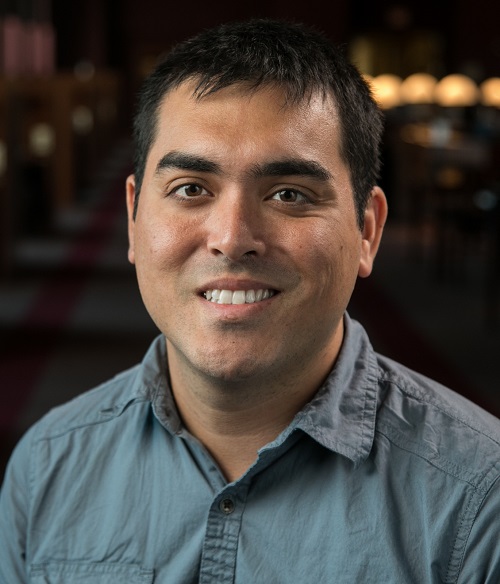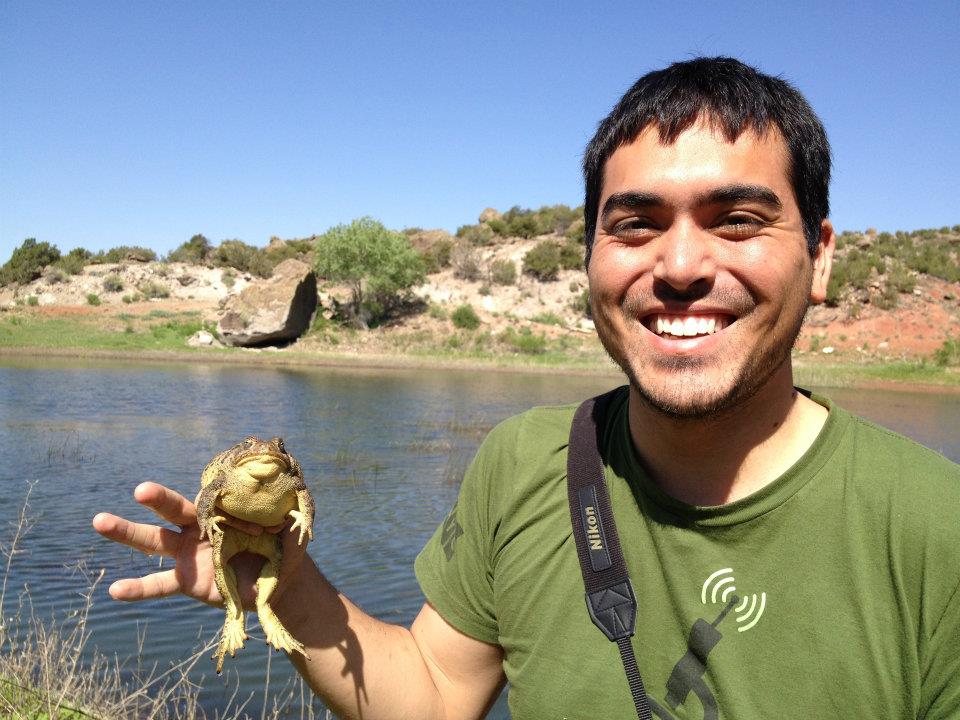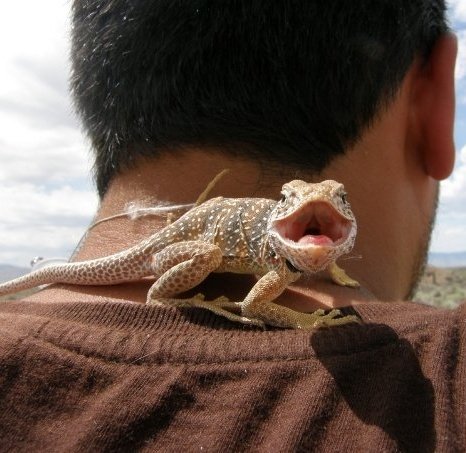About the department:
I am an Assistant Professor of Evolutionary Biology in the Department of Biological Sciences at Virginia Polytechnic and State University and affiliated with the Global Change Center, an interdisciplinary center that unites faculty from across campus interested in the effects of global change.
About the research:
My research seeks to understand the drivers of phenotypic evolution at the macroevolutionary scale. I try to unite phylogenetic comparative models with knowledge, data and processes at different biological scales. For example, how can we integrate and reconcile our understanding of trait evolution from microevolutionary studies with macroevolutionary models? Can our models better reflect anatomical, developmental and functional dependencies underlying phenotypic change? How can we make better inferences about the history of life? My hope is that these efforts will lead to stronger inferences of the causal mechanisms that determine when and why adaptation succeeds or fails over million-year timescales.
Are you recruiting? If so, how do you/will you choose new lab members?
Yes! The primary characteristics I'm looking for in new graduate students are curiosity, creativity and the ability to ask good questions. I also value students who have demonstrated resilience, grit and determination to reach their goals and welcome students from diverse backgrounds.
When was your first Evolution Meeting, and how did it affect your career? Do you remember your first publication in Evolution or Evolution Letters (acceptance or rejection)?
I've been to every Evolution Meeting since 2008 in Minneapolis and don't plan on missing any anytime soon. It's hard to overstate how important the meeting has been to my development as a scientist. My first meeting was the summer after I started grad school. It was my first talk at a national conference and also eventually became my first publication in Evolution, “Drift promotes speciation by sexual selection” with Steve Arnold, Paul Hohenlohe and Louise Mead. Years later, Doug Futuyma and I were having dinner and he said to the table that he thought "Josef and Ernst Mayr were exactly right" when referencing the paper. I asked him if I could put that quote as the header of my CV and/or as my epitaph, but I'll put it here instead.
Do you teach evolution? What is the hardest concept to teach?
Yes, I teach a 200-level evolutionary biology course of around 120 students. I try to emphasize evolution as a statistical process and encourage quantitative reasoning. The math that the students do is of course much easier than the math they do in many other courses and for the major. However, the hardest concept to teach is translating between measurements and models and the biology they are meant to represent.
What concept blows students’ minds?
I borrow an exercise from Thomas Hansen where I use back of the napkin calculations and the breeder's equation to have students determine how much evolution we'd expect if selection were of typical strength and continued in one direction for a few thousand years. We use class data on the heritability of human height. This year, we estimated that consistent selection for increasing height and constant genetic variance would result in a population of humans that averaged 117.5 meters tall after only 1,000 generations. It helps the student see that microevolution is more than capable of explaining biodiversity, and that often, the existence of stasis is the real mystery in evolution.
Do you have a time management tip to share?
No idea, but whatever one does, they probably should avoid being like me.
What book should every evolutionary biologist read?
The top of my list for the past year has been The Book of Why by Judea Pearl and Dana MacKenzie. The book covers how we study causation in science, both how it was treated historically as well as the rapidly expanding toolkit of causal modeling. Few books have so profoundly changed how I think about science. On top of that, it offers a fresh perspective on many of the familiar figures in evolutionary biology, making it an enjoyable read for our community.
What one piece of advice would you give to a starting graduate student?
One piece of advice that always stuck with me was that people are most satisfied with their jobs not when they're doing the thing they enjoy most, but when they put their best skills to problems they think matter. Not a skill that is better than what everybody else can do, just whatever an individual thinks they do best. I think this formula is really powerful, and has helped me in my own career. Research can be often frustrating and disappointing, rejection is common, and imposter syndrome is ubiquitous. Finding value and purpose in what you do on a daily basis can help sustain you long term through the down days.
What is something most people don’t know about you?
I didn't believe in evolution all the way up until senior year of high school. In fact, I went door to door distributing anti-evolution literature and I participated in debates on the creationist side. I would like to think this gives me some perspective on how minds get changed. I often hear from people that extreme evolution or climate change deniers that are not worth arguing with, and that they are a lost cause. That stings. I always emphasize to people that no one changes their mind during an argument--that's just not how the human mind works. Having a person realize you're right with a sudden, satisfying epiphany will never happen, but that doesn't mean it's not worthwhile. Of course, debating die-hard deniers is not for everyone. But we shouldn't discourage it either! If you go into the discussion with realistic expectations, empathy, respect, and work toward developing personal relationships, you may be rewarded--I am immensely thankful for the people who spent the time to talk with me in my own journey.
What do you enjoy doing in your free time?
A lot of my research is computational these days, but I became a biologist because of my love of the natural world. I have always enjoyed herping, birding and botanizing, and these are still my favorite hobbies. I also love to garden and grow carnivorous plants.
 Josef Uyeda
Josef Uyeda
